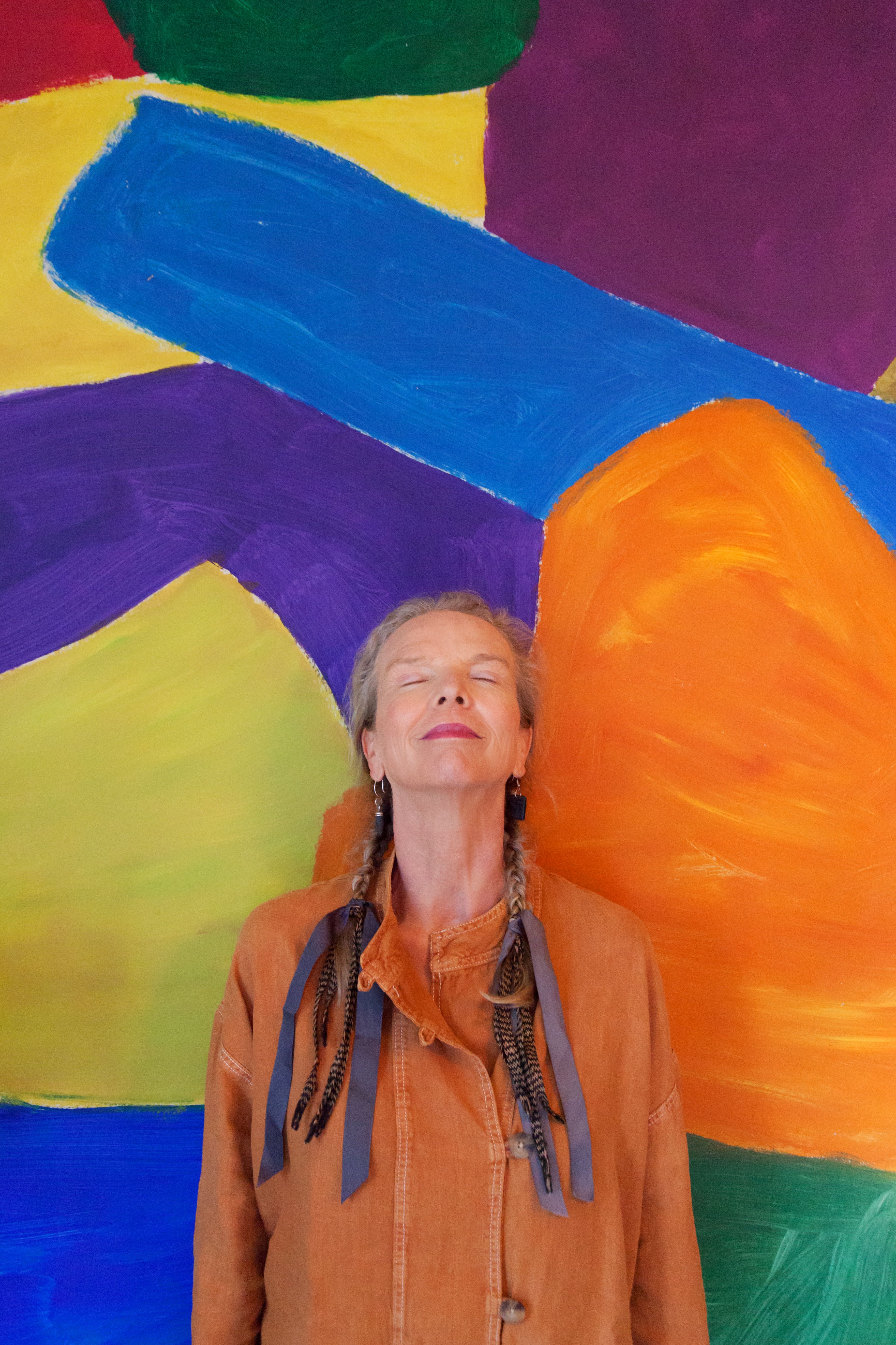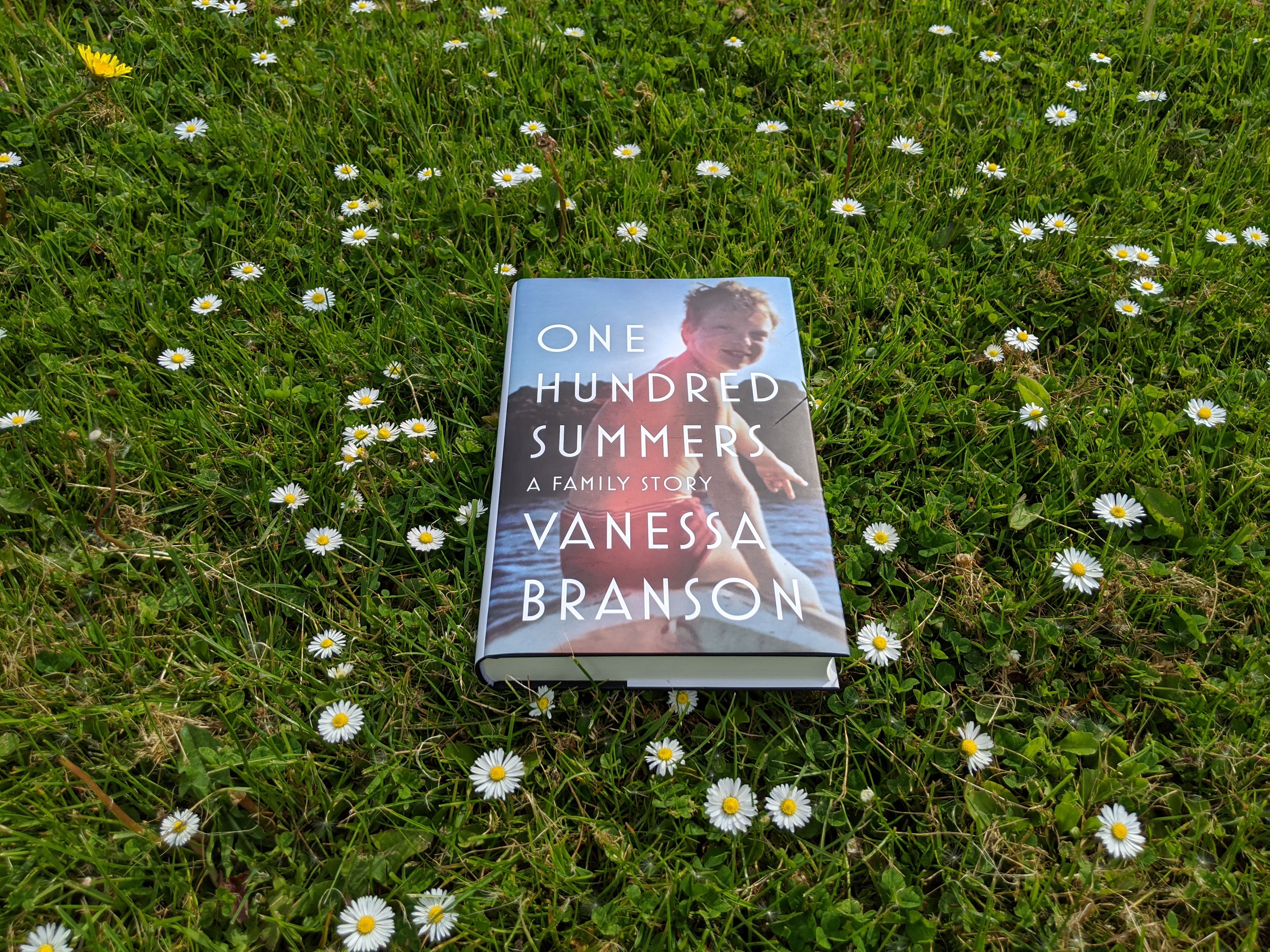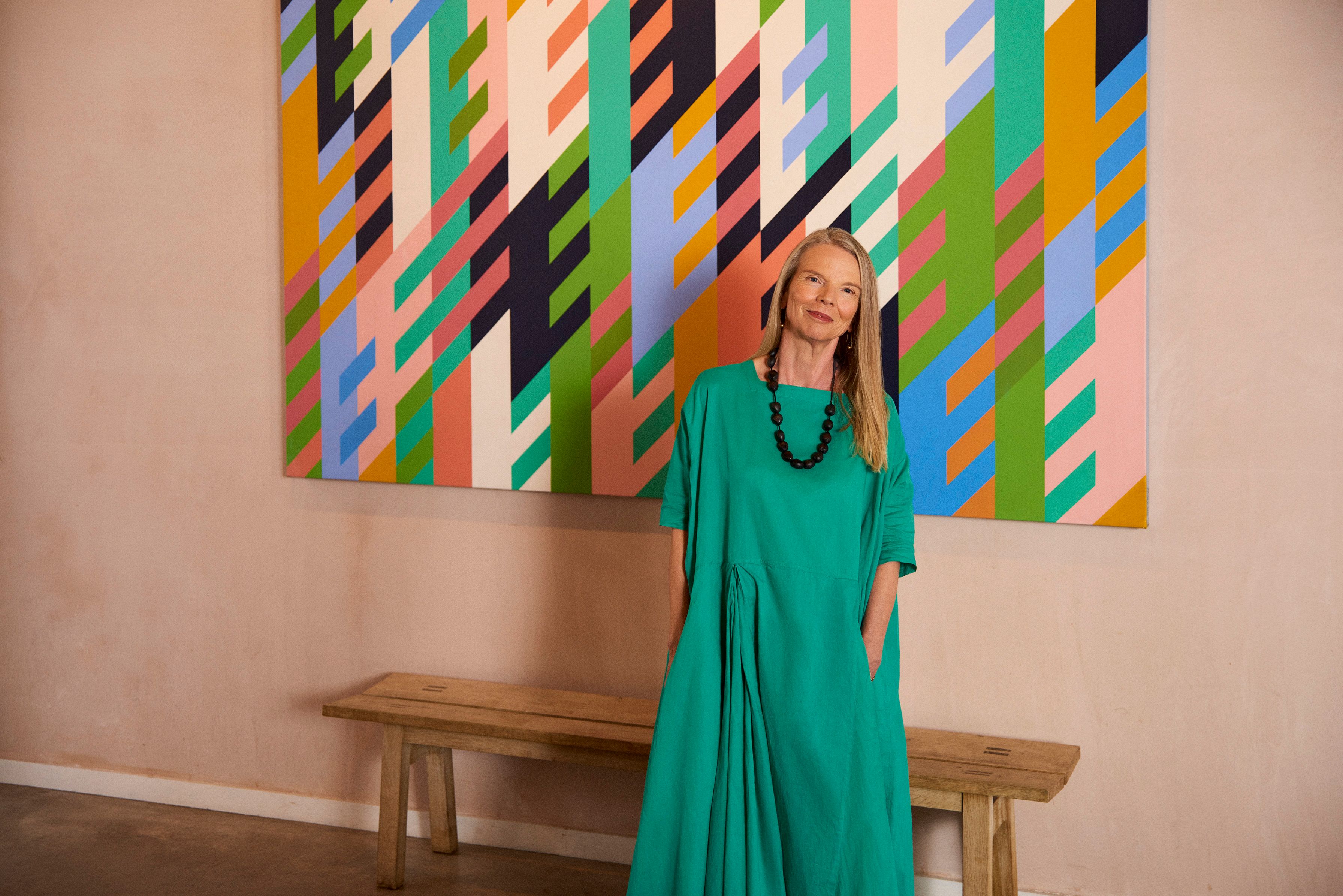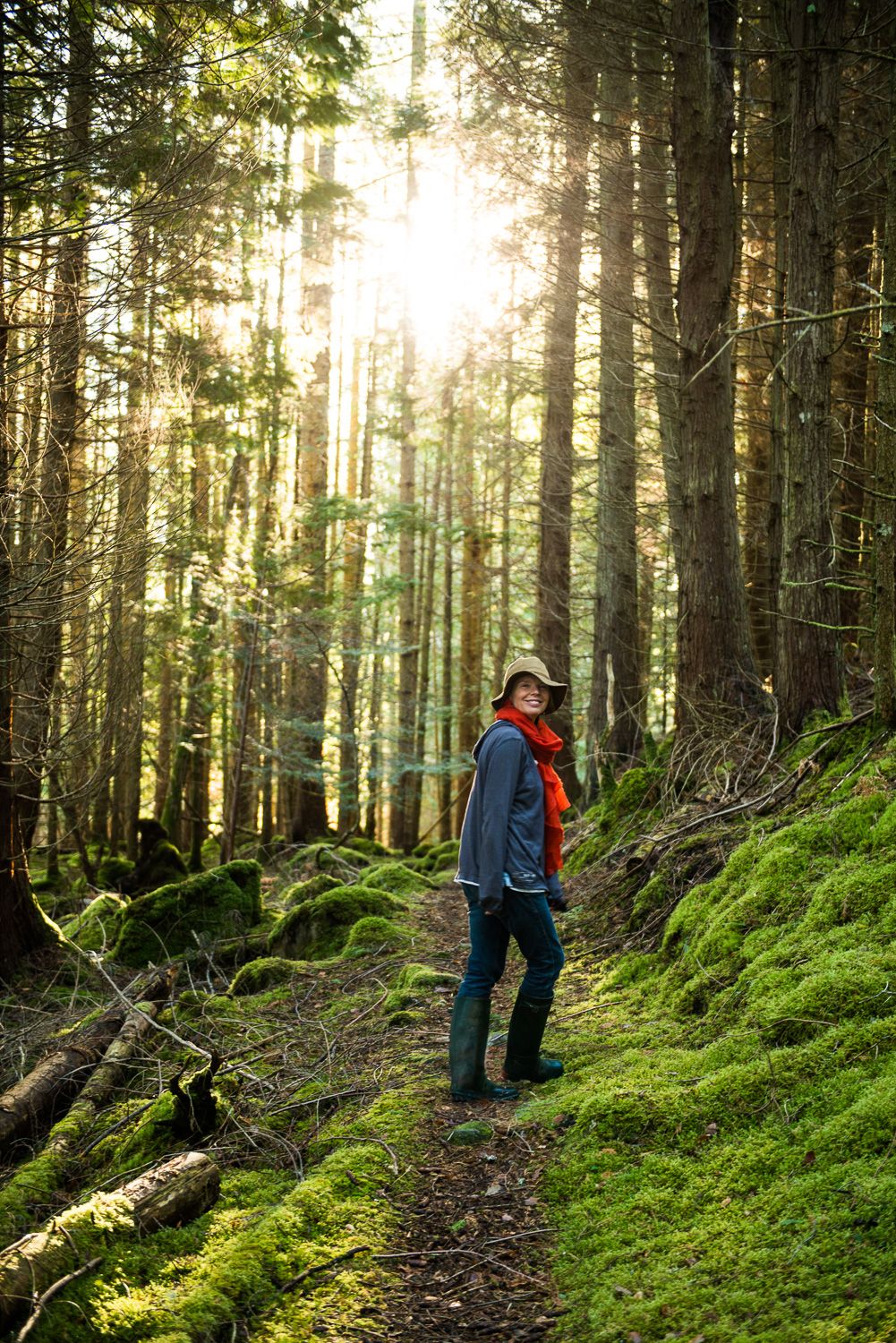
The unexamined life is not worth living – such is received wisdom from classical antiquity, being attributed specifically to the kingpin of western philosophy Socrates. And it’s precisely this notion that we cannot know ourselves deeply without adopting the vantage point of critical distance that seems to have inspired the ever-vivacious entrepreneur, art maven and author Vanessa Branson to pen the celebrated memoir One Hundred Summers. The compulsive read takes an uncompromising look over three generations of her family to delineate the genesis of the values she cherishes, and rather brilliantly ties together family history, world events and her own heady journey as a mother, founder and businesswoman in an era of accelerated change. It’s a no-holds-barred affair that takes into its sway an unconventional childhood, the heady swirl of running a West London art gallery in the 1980s (alongside the stratospheric rise of her bother’s company Virgin), and the founding of The Marrakech Biennale, while not shying away from the more challenging moments we all have to face in life, candidly documenting, for example, the breakdown of her marriage to Robert Devereux and its sometimes devastating fallout. Here, the boundless raconteur talks to Culture Collective about the profound impact of exploring one’s past, divulges the inspiration behind her latest project Sprout Club, and tells us why, no matter what challenges we face both within ourselves and in the wider world, there is always positive work to be done.
What would you say you have learned from the process of writing a memoir?
It’s quite hard to separate out the years passing in life at the same time as it is happening – my mother died this year and that is life changing, and I’ve become a grandmother, so the book being out there has kind of coincided with big life events that take you into a different period, but there is no doubt that writing a book like that has a profound impact. I actually started writing the book as a response to Donald Trump’s inauguration. That was just a moment of absolute panic for me, and I wanted to hold on to some values I held dear. I just felt I wanted to go back and look into my parents and where those family values came from, and how much we are the product of our families, or the period of history that we are born into. I became very aware of repeated patterns that I started seeing through the generations, and I really enjoyed that. I find it deeply settling to feel that thread coming though. It completely contextualises your life to write a memoir, and I think I just felt very landed into where I am in doing it – and that is a great feeling, I have to say.
Did you have to place yourself on the couch to write the book?
Well, I’ve done a lot of that, as well (laughs). I don’t know if you could have written a book like this without having a few years psychoanalysis. With every line you write, you go back and are combing, and combing, and you are just very careful about every single word. The great thing is that it sharpens your memory, because, as you get older, things can get a bit fuzzy. I was actually reading it to my mum as her memories were floating in and out, and she absolutely loved it, she giggled away the whole time – that was really pleasurable, to be writing it in the last years of her life. I was also very conscious I didn’t want the book to be all about me, and placing my life in the context of what was going on at the time makes it relatable, because people remember all those really huge and momentous things that we all live through – it was really interesting to remember the waves of what was happening at the time in the world, and, even more than that, just not having any secrets is a really nice way of living.

There has been a lot of focus on the candid description of a marriage destroyed by infidelity …
Yeah, but it’s just one part of a long book – it’s certainly not the be-all-and-end-all of the book. I do think it was one of the motivations, though – a lot of people think it's disloyal to write about a relationship falling down, and I suppose it could be conceived as such, but I didn't want to carry the shame of it all any longer, because in those situations, you inevitably blame yourself. I had lived with that shame. I also wanted the children's pain to be acknowledged, because they were so brave through all of that, and they've been amazing. They have a brilliant relationship with their father now, and we've managed to navigate it all successfully. It was so important to me that publishing the book didn't damage any of that. I read it with all the kids together, so they didn't read it in isolation and get upset, and they all said that it was really accurate.
What made you stay in an unhappy situation for so long, do you think?
I have asked myself that over the years, and I think it is just a bit of a funnel that you fall into, and there was no getting out of that for me because I had such a strong belief in family. Robert was also a really nice man and a good father, so there was an awful lot about him that was great, he just wasn’t such a great partner – so, it was really confusing. I felt I couldn’t walk away from the marriage, and what happens is that your confidence just gets chipped away to the point that you believe that you are not worthy. I tend to think those kinds of relationships are about one person trying to keep their head above water while the other person is being completely sunk underneath, and now if I see that happening to other people I call people out on it, because it’s something that is often not apparent to anybody else – it’s so easy to do it without anybody else noticing, and it is just places you on edge all the time.

How did you ultimately silence the voice of negative reinforcement?
God, it's taken an awful long time. That's really an interesting question. It definitely doesn't happen with one flip, and it can sometimes raise its ugly head again, and there's nothing positive about that at all. I think you can tell whether you're okay by whether or not you are getting a night's sleep, to be honest, and it was probably something like 25 years of not sleeping through the night. I sleep like a baby now. This might sound a bit controversial, but I do believe that you just have to cut off completely from the source of the negative reinforcement – otherwise it can trigger you to go back there again, and again.
The book recounts meeting with some amazing people, who resonates the most with you now …
I don't know. I mean, of course, it is amazing to meet someone like Bob Dylan backstage, but it is not the same as when you spend a weekend with someone, and you really have the time to sit down with a cup of tea and have a chat. I always found it fascinating to meet people like Eric Schmidt who started Google, and all those sorts of people, but they're not always the easiest. I’ve worked with so many artists over the years, from way back in the days of Portobello to Marrakech, and I think what truly amazing and creative people share in common is kind of having a layer of skin missing – they’re often just super sensitive. I think probably truly amazing people are a bit sort of quieter than most, so if you are want to be dazzled when they're off the stage, it's not going to happen. I do recount spending an evening in Ravello with Gore Vidal in the book. He was absolutely fascinating, and had some wonderful stories. I couldn't resist asking him what you should do when your husband's having a midlife crisis, and when he replied, darling, seduce his lover, it was just the most marvellous riposte.

You’ve done so many different things over the years, from your gallery in Portobello in the 80s to El Fenn and The Marrakech Biennale - do you have anything new in the pipeline?
Yes. I am launching something called Sprout Club, which is a simple idea, but it could solve so many problems we are facing if people adopt it. It's just a platform where people who need a plot of land can meet up with people who have garden to spare – because, as you know, there are an awful lot of elderly people who still live in houses with gardens, while younger people can't get access to housing. We actually have around 20 million gardens in this country, and that means millions of hectares of uncultivated land. It’s crazy that we import 80 per cent of our fresh vegetables while we've got one of the most fertile climates on the globe, and we should be engaged in a knowledge exchange with our migrants, because we are losing so many of our skills here. People coming in from Africa and Eastern Europe are like gold-dust because they've got growing skills, so rather than see them as pariahs, like certain members of the government or the media, they should be seen as absolutely golden. We've got to get our food production going here, and people have got to be more self-aligned – we're too dependent on the supermarkets, and we are far too dependent on the state.
It’s interesting you touch on media stereotypes – do you think you are someone who is driven by challenging the status quo?
I think it's important to get your information from all kinds of different sources, and I think doing the right thing at the right time is really important. Recently, I travelled to Kiev, and I got such an insight into what it's like being a country at war. I believe that we should all be on a war footing right now, and whether that's against Russia, or whether that’s our war with climate change, we have to step up – we’ve got to wake up and smell the coffee, and rise to the occasion. That is what my new business is about. I have actually realised writing the book that what I've fundamentally enjoyed through my life is creating an environment where other people can really flourish. I mean, I was always really driven with The Marrakech Biennale to create a platform for exchange, and I learned so much working in Morocco. I've said this in the book, but you can really control people if they don't question their parents, their teachers, their God … and, of course, the arts are all about questioning and critical thinking. I’m actually very excited to see the changes happening in Saudi Arabia, because they're really opening up to the arts now. It’s incredible what's happening there, but the western media just aren't focusing on any of the extraordinary things that are happening. There are always positives. There are always things that can be done.
Find out more about all of Vanessa Branson's projects here
Your can order One Hundred Summers here
Images (top to bottom): portrait of by Brendan Cox; portrait by Phillip Sinden; portrait by J Bedford